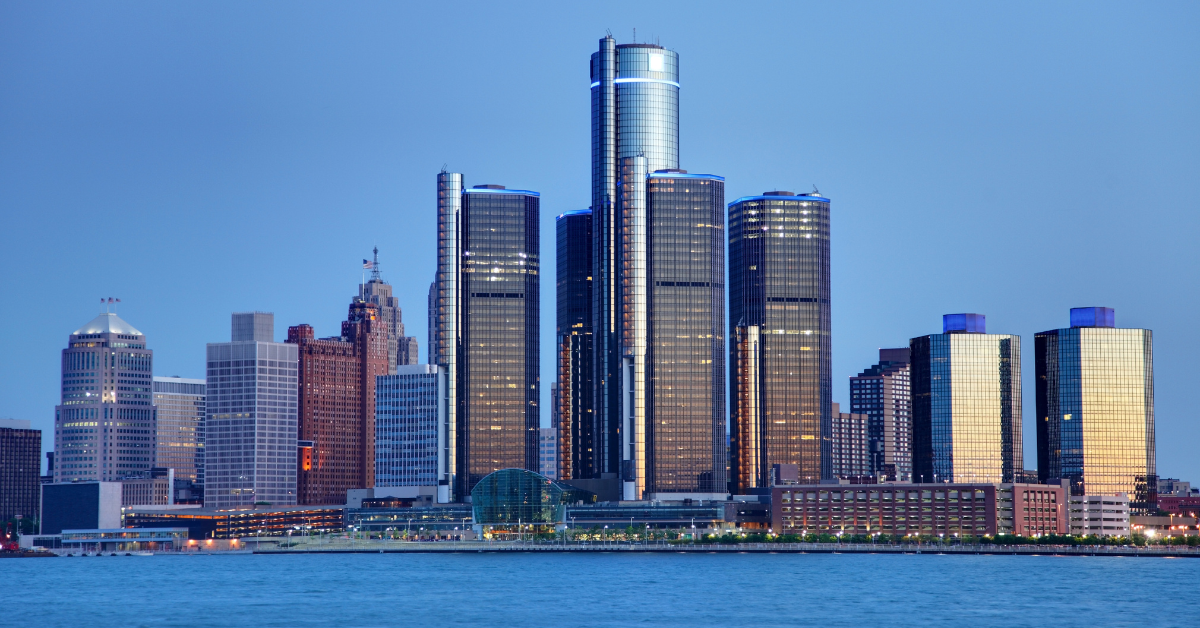Detroit is generally written in katakana in Japanese, and no standard kanji form exists. While Chinese uses 底特律, Japanese has adopted katakana to maintain clarity and consistency. Beyond its written form, Detroit evokes multiple images in Japan, from an automobile hub to a city of decline, and even a cultural powerhouse.
How Detroit Is Written and the Absence of Kanji Representation
In Japanese, Detroit is consistently written in katakana. Place names and foreign cities are usually transcribed phonetically into katakana, and using kanji is extremely rare.
In contrast, Chinese uses the transliteration 底特律, which is composed of characters that mimic the English pronunciation. While visually distinct, this practice never became common in Japanese.
Here is a comparison of representations:
| Language | Representation | Notes |
|---|---|---|
| Japanese | デトロイト (Detroit) | Standard notation |
| Chinese | 底特律 | Transliteration based on pronunciation |
| Historical Japanese | Hypothetical ateji | No longer used |
Thus, when writing Detroit in Japanese, katakana is the natural and standard form.
The Image of Detroit Among Japanese People
Center of the Automobile Industry
Detroit was once known as the “Motor City”, widely recognized as one of the world’s largest automobile industry hubs. Ford, GM, and Chrysler, the Big Three, established their headquarters there, and for Japan’s car manufacturers, Detroit represented both a rival and a source of inspiration.
| Era | Japanese Perception | Background |
|---|---|---|
| Postwar – Economic Boom | Holy land of automobiles | Dominance of the Big Three |
| 1970s and beyond | Declining city | Industrial hollowing and crime rise |
| Today | City of revival attempts | Attention on new industries and culture |
Symbol of Urban Decline
From the 1970s onward, Detroit suffered from the decline of its auto industry. Population loss and worsening public safety led Japanese media to frequently portray Detroit as a “ruined city”. This coverage strengthened the negative perception among many Japanese, painting Detroit as a symbol of decline.
Cultural and Musical Hub
Detroit is also celebrated as a birthplace of major music movements. Motown Records produced stars such as Stevie Wonder and Marvin Gaye, making the city a symbol of soul and R&B for Japanese fans. In recent years, jazz and hip-hop festivals have enhanced Detroit’s cultural reputation.
| Music Genre | Detroit’s Role | Influence in Japan |
|---|---|---|
| Soul & R&B | Motown’s birthplace | Popular since the 1960s |
| Jazz | Host of major festivals | Appreciated by Japanese enthusiasts |
| Hip-Hop | Blends with local youth culture | Gaining traction with younger fans |
Detroit as a Sports City
Beyond cars and music, Detroit is one of the few cities in the U.S. that has professional teams in all four major sports.
| Sport | Team | Notable Feature |
|---|---|---|
| Baseball | Detroit Tigers | Historic MLB franchise |
| Basketball | Detroit Pistons | Famous for “Bad Boys” era of the 1980s |
| Ice Hockey | Detroit Red Wings | Multiple-time NHL champions |
| American Football | Detroit Lions | Deeply rooted in the local community |
Sports have played a vital role in keeping the spirit of Detroit alive. Games are moments when the city regains a sense of unity, and the teams provide both pride and resilience to its citizens.
How Japanese People Encounter Detroit
Japanese perceptions of Detroit are shaped by media, cinema, and music.
- Economic news emphasized Detroit as a symbol of industrial decline
- Films often depicted it as a crime-ridden city, reinforcing negative stereotypes
- Music coverage highlighted Detroit as a source of hope and creativity
This duality has made the Japanese view of Detroit complex, reflecting both admiration and concern.
Conclusion
Detroit does not have a standard kanji representation in Japanese, and katakana remains the only widely accepted form. While Chinese uses 底特律, this never became common in Japanese.
For Japanese people, Detroit evokes multiple images:
- Center of the auto industry
- Symbol of decline
- Cultural and musical hub
- Sports city
By considering these diverse aspects, Detroit can be understood in a more multi-dimensional and nuanced way, beyond a single stereotype.






